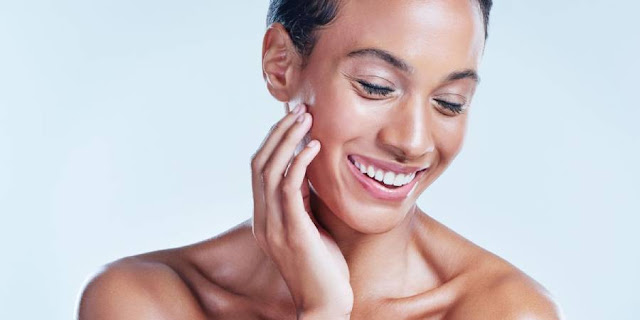Featured
- Get link
- X
- Other Apps
Makeup and Skin Care for Acne
We spend a lot of time, effort, and money looking pretty (or pretty, depending on your gender). Americans spend nearly $ 9 billion a year on creams, scrubs, concealers, and a range of other cosmetics that claim to keep our skin clean, clean, and youthful. computersmarketing
Ironically, the very foods you rely on to keep your skin looking its best can dramatically improve your pores. Using the wrong makeup or cream can actually accentuate the acne you're trying to hide. answerhop
Caring for acne-prone skin requires careful cosmetic research - reading labels to find products that won't clog pores or cause more breakouts. WebMD has made this process a little easier by putting together a checklist of essential ingredients for makeup and acne care. hollyhealthfitness
Use this acne skin care checklist as you browse through the makeup and makeup rows at your local grocery store or pharmacy. webtechgalaxy
Moisturizers and acne
Somehow, the idea that moisturizers shouldn't be used on acne-prone skin started to spread many years ago, and now many people with acne are avoiding them like the plague. In fact, moisturizers are an essential part of your daily acne skincare. Acne treatments prescribed or recommended by your dermatologist may contain drying ingredients such as benzoyl peroxide, which can absorb moisture from the skin and leave it red and irritated. A good moisturizer keeps water on the skin and prevents it from drying out and unsightly flaking. healthbeautystudio
What to look for: Choose a light, oil-free moisturizer labeled “non-comedogenic”. It's just a fancy way of saying it won't clog your pores. Also look out for ingredients like glycerin and hyaluronic acid, which trap moisture in your skin. What to avoid Fatty, heavy foods that contain grain-making ingredients such as cocoa butter, mineral oil, or cold cream.
Should I use scrubs and masks for acne?
There is no need to smear teal or mud on your face and scare every neighbor's child. Experts say that masks and face scrubs do little to treat acne. A gentle, non-abrasive cleanser formulated for your skin type (oily, dry, or combination) will do much more to keep your face pimple-free.
Anti-acne aftershave lotions
Men with acne should also pay attention to their skincare regimen. Shaving can be both positive and negative for men's skin. The benefit is that daily shaving acts as a natural exfoliating agent, opening pores and removing excess oil. But if you shave the wrong way or use the wrong products, you may get more acne. Or you may have bumps that are not pimples but look very similar to them. Bumps appear when freshly cut and pointed hairs return to the skin and cause swelling of the skin.
What to look for: Use a lubricating, non-irritating shaving gel or prescription shaving foam that contains benzoyl peroxide or a topical antibiotic for men with acne. Use a sharp razor when shaving to avoid pulling on your hair or cutting your skin. Shave downward in the direction of hair follicle growth to avoid irritation. After shaving, avoid using an alcohol-based cologne spray or aftershave that can irritate your skin, not to mention open cuts or recent acne. Instead, use an oil-free moisturizer or a prescription antibiotic lotion or gel.
Wearing makeup for acne
People have hidden their spots for centuries. In The 1600s, women wore silk ribbons shaped like stars and moon to hide smallpox scars. Today we use makeup to hide pimples, but coating layer by layer when you have acne is not necessarily the best approach. Makeup is great at hiding pimples, but it can also accentuate them if you use the wrong concealer or apply too much. The redness and flaking that many acne products leave behind can look even worse if heavy makeup is applied.
What to look for: All your makeup, from blush to eyeshadow, should be non-greasy, non-comedogenic (or acne-free), hypoallergenic, non-irritating, and fat-free. Familiarize yourself with the ingredients: water should be the first. Mineral cosmetics contain added ingredients such as silicon dioxide, titanium dioxide, and zinc oxide to absorb oil and hide redness without irritating the skin or causing acne. Another ingredient to look out for is dimethicone, which also conceals redness and smoothes uneven skin.
Sunscreen for people with acne
Contrary to popular belief, sunscreen does not cause acne. And while red, tanned skin can temporarily hide your acne, too frequent burns can also lead to premature lines and wrinkles and increase your risk of skin cancer. You want to protect your skin when you are outdoors without applying a single drop of greasy sunscreen.
What to look for: Use a broad-spectrum sunscreen
with an SPF of at least 30 and a physical sunscreen such as zinc oxide at least
6% to protect against UVA and UVB light. For people prone to breakouts, a light
liquid or aqueous gel, or sunscreen spray is best. You can also look for
lightweight lotions and powdered sunscreen. Note the "non-comedogenic"
label, which means it shouldn't clog the pores on your skin. Be careful with
chemicals like PABA and benzophenone, which can irritate sensitive skin.
- Get link
- X
- Other Apps
Popular Posts
The Best Skin-Care Tips of All Time, According to Dermatologists
- Get link
- X
- Other Apps

